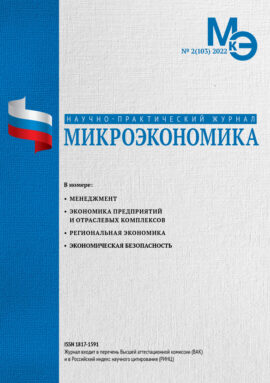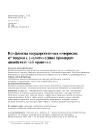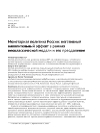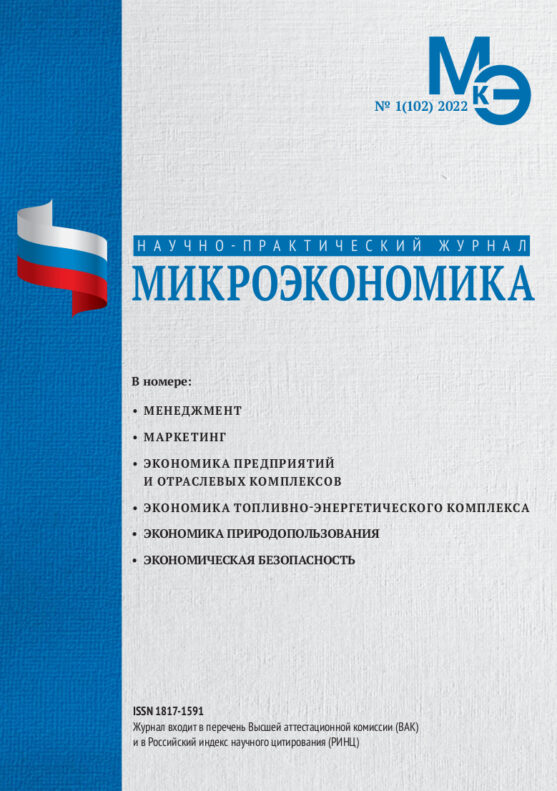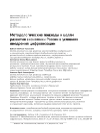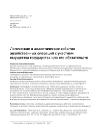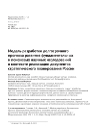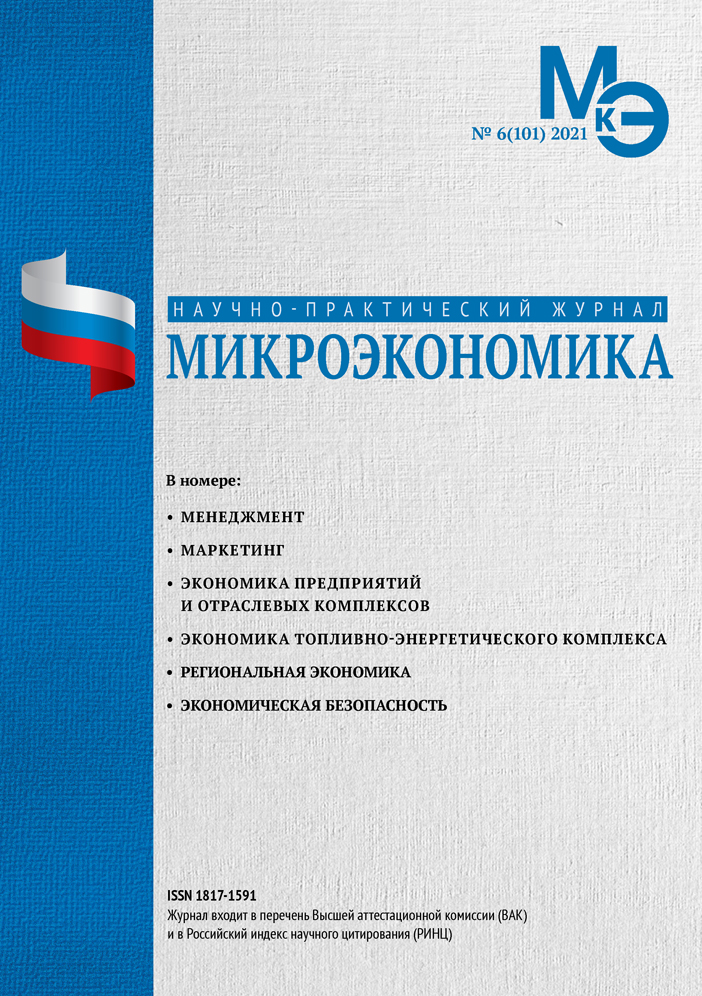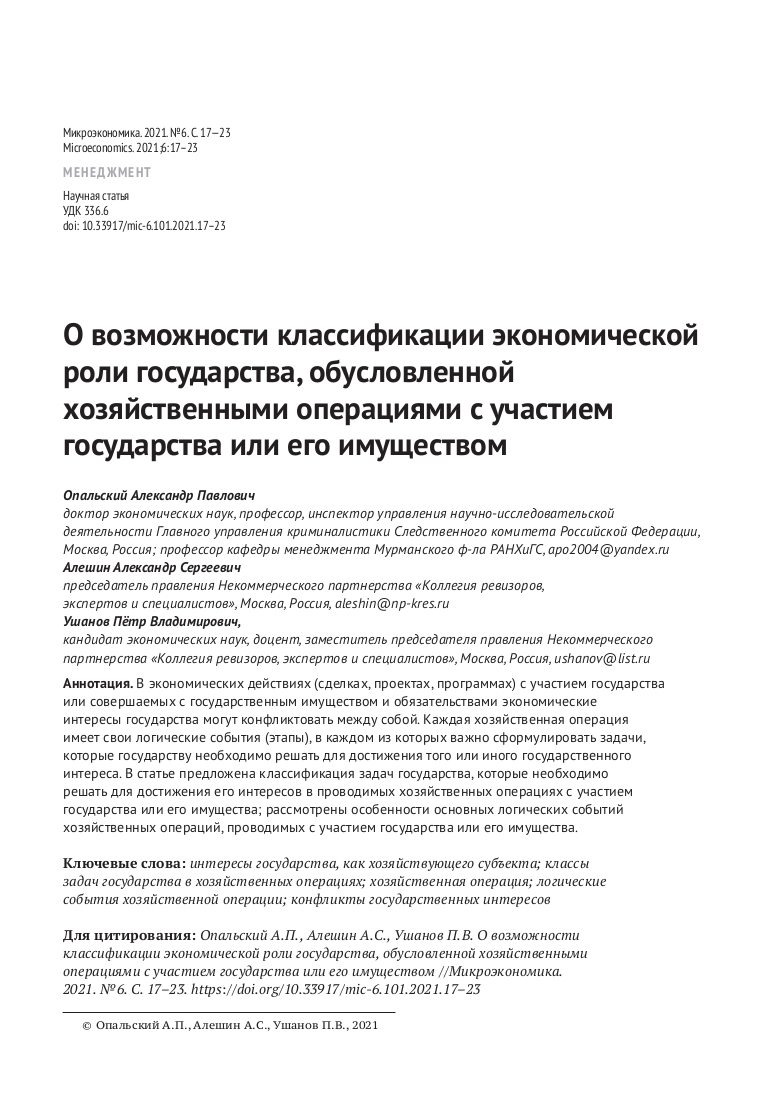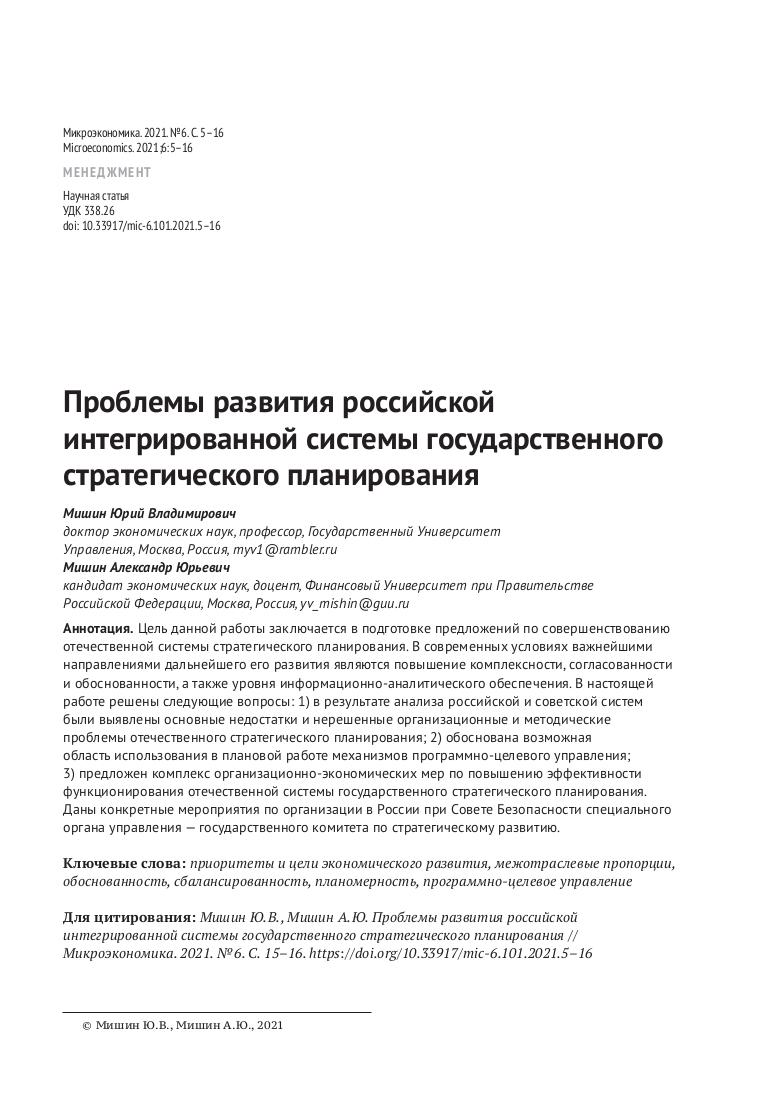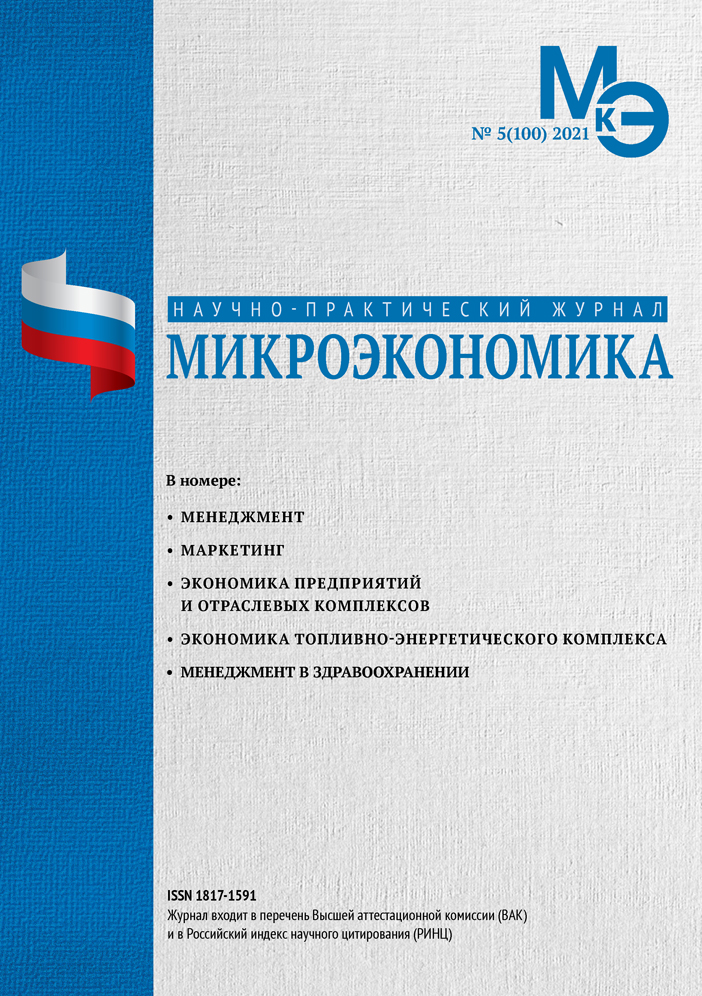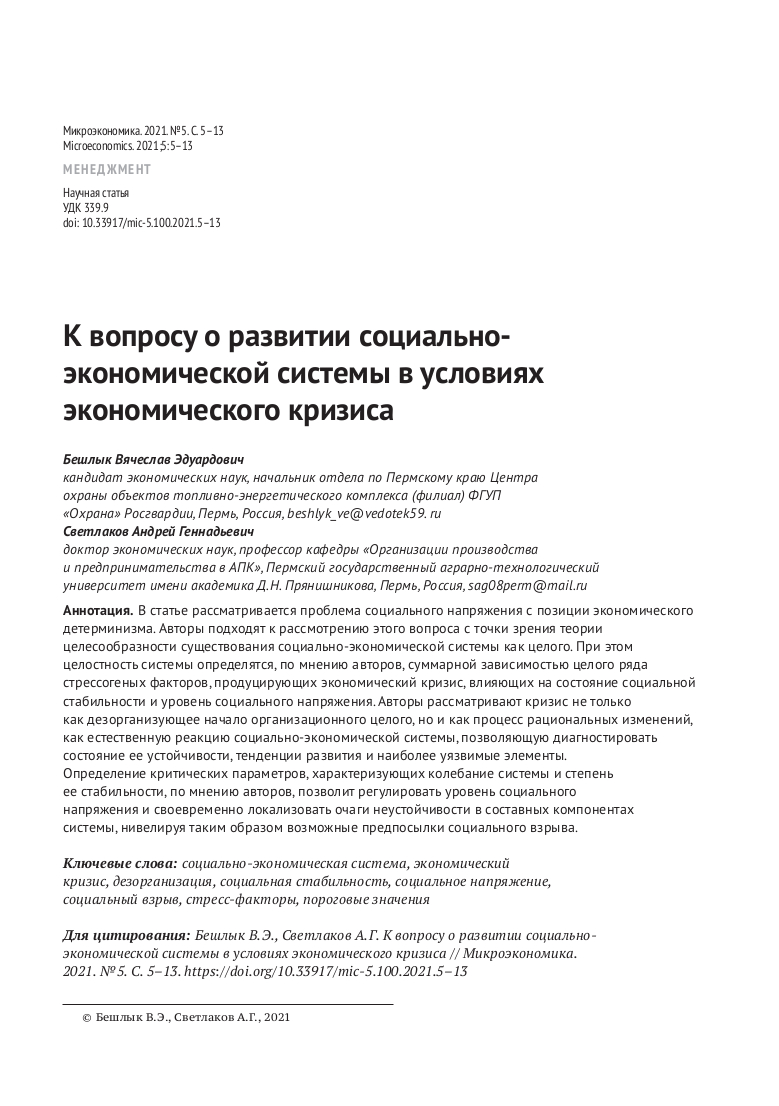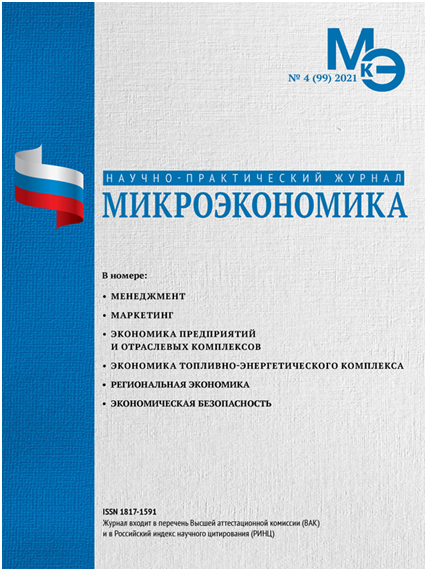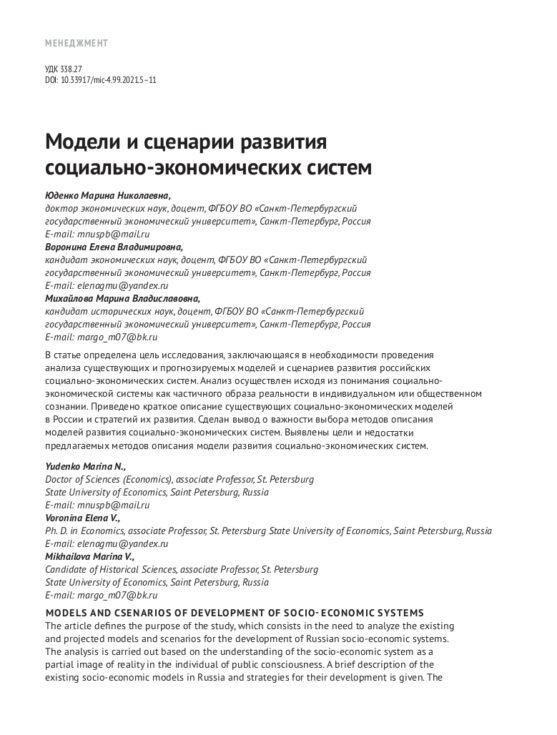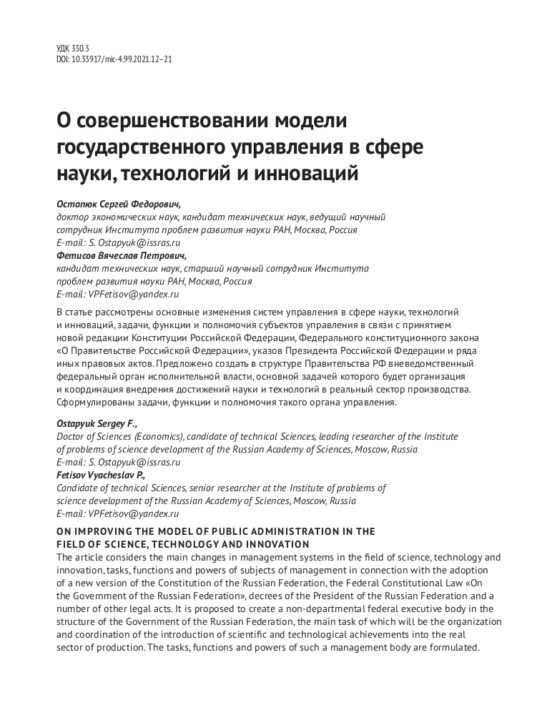Conflicts of state interests: from theory to analytical examples of economic practice
DOI: 10.33917/mic-2.103.2022.39-48
The state is a specific economic entity. With all the variety of tasks performed on behalf of the state in the actions performed with state funds and property, the legitimate interest of the state at the general epistemological level is not defined in any way. The article focuses on the need for universal approaches to develop criteria for assessing the violated state interest from the position of an expert economist who evaluates the effectiveness of managerial decisions.
References:
1. Civil Code of the Russian Federation (Part One) dated November 30, 1994 No. 51-FZ. URL: http://www.consultant.ru/document/cons_doc_LAW_5142/
2. Criminal Code of the Russian Federation. URL: http://www.consultant.ru/document/cons_doc_law_10699/
3. On the Government of the Russian Federation: Federal Constitutional Law of December 17, 1997 (as amended on December 3, 2012). URL: http://www.consultant.ru/document/cons_doc_LAW_17107//
4. On the protection of the rights and legitimate interests of investors in the securities market: Federal Law No. 46-FZ of March 5, 1999. URL: http://www.consultant.ru/document/cons_doc_LAW_22219/
5. On the protection of consumer rights: Federal Law of February 7, 1992 No. 2300-1. URL: http://www.consultant.ru/document/cons_doc_LAW_305/.
6. On the contract system in the field of procurement of goods, works, services to meet state and municipal needs: Federal Law No. 44-FZ of April 5, 2013. URL: http://www.consultant.ru/document/Cons_doc_LAW_144624//
7. On the privatization of state and municipal property: Federal Law No. 178-FZ of December 21, 2001 (as amended on April 1, 2019). URL: http://www.consultant.ru/document/cons_doc_LAW_35155/
8. On Joint Stock Companies: Federal Law No. 208-FZ of December 26, 1995 (as amended on April 15, 2019). URL: http://www.consultant.ru/document/cons_doc_LAW_8743/
9. National Security Strategy of the Russian Federation until 2020 (approved by Decree of the President of the Russian Federation of May 12, 2009 No. 537). URL: http://www.consultant.ru/document/cons_doc_LAW_191669/942772dce30cfa36b671bcf19ca928e4d698a928/
10. Economic security strategy of the Russian Federation for the period up to 2030 (approved by Decree of the President of the Russian Federation of May 13, 2017 No. 208. URL: http://www.consultant.ru/document/cons_doc_LAW_216629/1d8dcf5824d5241136fa09b9e9c672ac5d325365/
11. Vitruk N.V. System of personal rights. The rights of the individual in a socialist society. M.: Science, 1981. 272 p. (In Russ.).
12. Gambarov Y.S. the Course of civil law. Vol. 1: the General Part. SPb., 1911. 793 p. (In Russ.).
13. Gribanov V.P. Interest in civil law. Sovetskoe gosudarstvo i pravo = Soviet state and law. 1967;(1):49-56.
14. Ioffe O.S. the Relationship on Soviet civil law. L.: Leningrad University Press, 1949. 144 p. (In Russ.).
15. Kovyazina N.M. Interest and subjective right: the ratio of legal categories. Zakon i pravo = Law and right. 2018;(09):60-66. (In Russ.). doi: 10.24411/2073–3313–2018–10141


